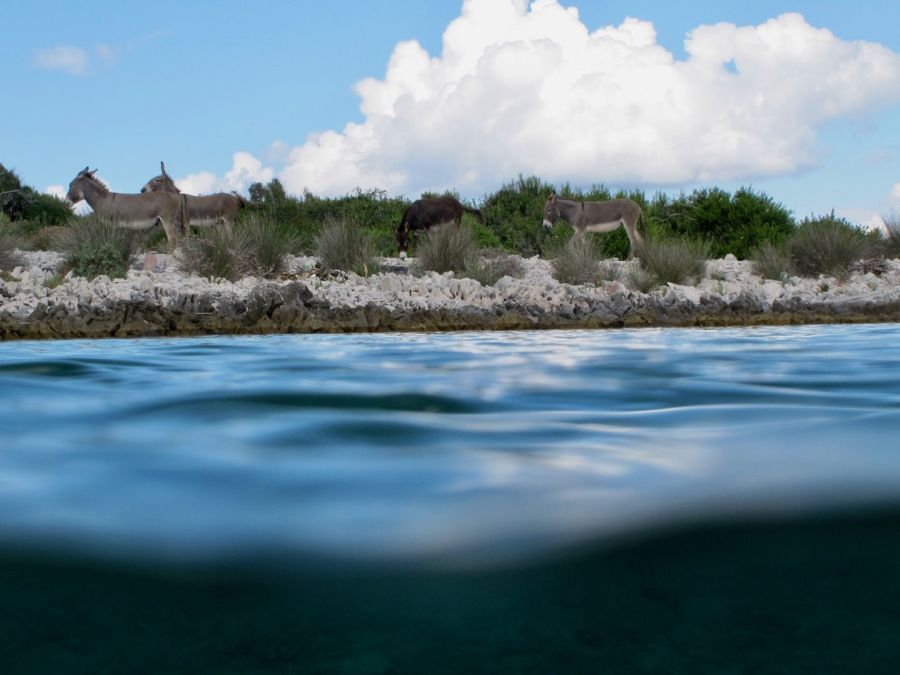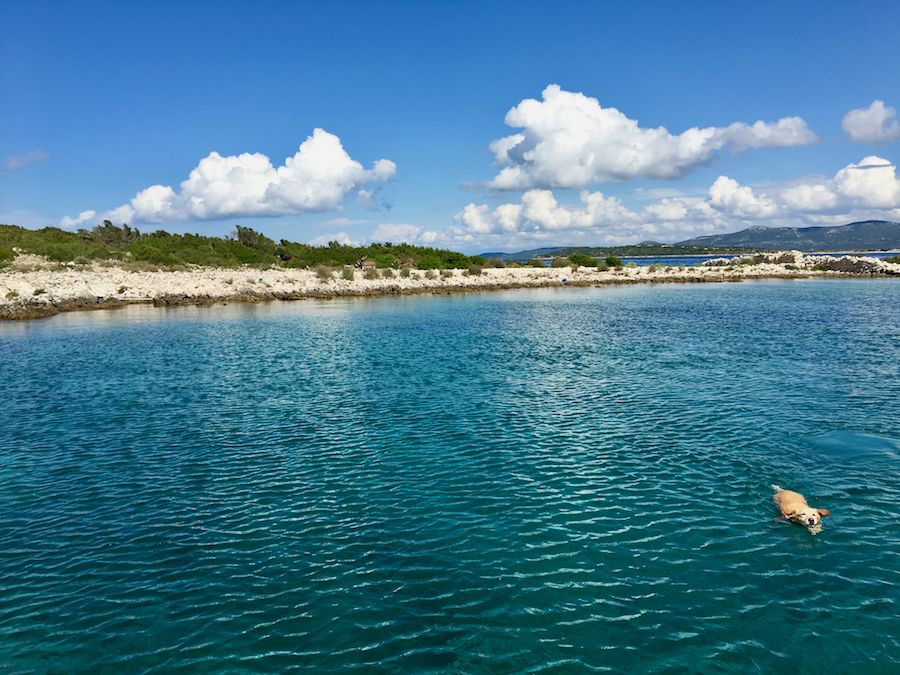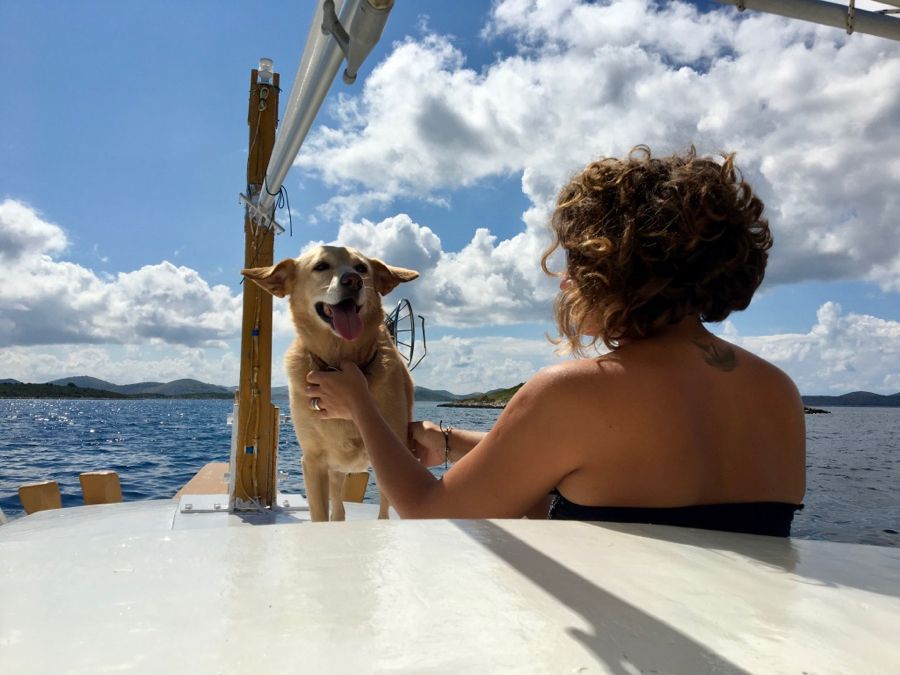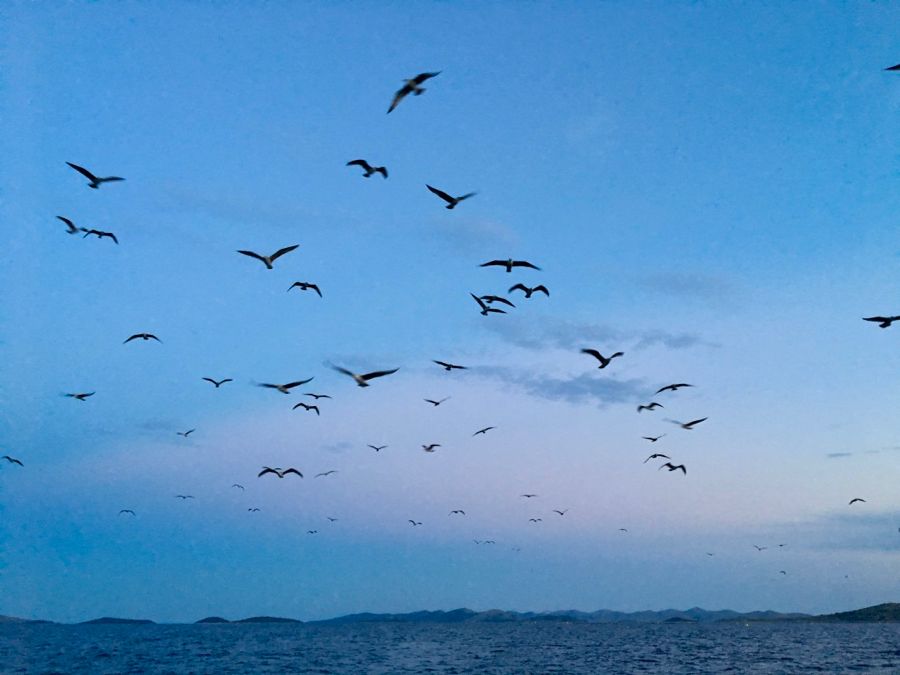September 18, 2020 — All my dog wanted to do was take a leak. Perhaps sniff something.
Then the braying started.
The sea was calm. The air brisk, not chilly. My wife and I shoved off our home port on Mali Iž, steering my father-in-law’s 107-year-old boat towards some editorial beers on the island of Žut with TCN founder Paul Bradbury, ahead of his daylong munch-fest.
I glanced at my map and guffawed.
“Oh yeah, we’re going to Kurba Mala!” I shouted, relishing its name ("Little Whore"). My wife rolled her eyes.
The veritable library of glossy magazine articles, travel guides and websites churning out Croatia’s “must see” hot spots rarely mention the Adriatic’s overlooked gems: its uninhabited islands, islets, rocks and reefs — over 1,000 — which dot the coast from end to end.
Yes, Dubrovnik has its walls. And Istria its olive oil and culinary prowess. Yet the human-free islands dotting all points in between offer undiscovered lumps of limestone jutting out of the water. Each has its own character, history and owners — yes, the locals even parceled those out amongst themselves centuries ago.
Kurba Mala struck an enticing pose in the distance, a dual-peak cut in its middle by a sea-level valley. We positioned the boat on the island’s southern side, dropping anchor into the turquoise waters. Our dog, Flo, went into her usual panicked ritual of yelping and squealing until she jumped into the water then swam to the islet.
She reached the jagged shore, then a chorus of hee haw-ing pierced the afternoon air. Four donkeys clopped towards our dog, braying and whining as they flashed their teeth.
It turns out the Little Whore has a lot of ass. (And a five-star rating on Google, for some reason).
Legend has it that the unusual name owes its origins to some bored local who was helping out some efficient Austro-Hungarian chaps, who insisted on mapping everything. Very un-Dalmatian. After telling the Austrian official the names of countless islands and villages throughout the process, the local decided to have some fun with the non-Croatian-speaking official.
"This island is called 'Big Whore', this one 'Little Whore'." That kind of thing.
Childish. But permanent.

Within Dalmatia’s archipelago, older generations tell tales of uninhabited islands serving as de facto donkey depots. A sort of communal beast of burden program, where islanders snag a donkey roaming an uninhabited islet, put it to use then return it. Kurba Mala, it seems, is among these islands.
Flo greeted the angry asses with a tentative wagging tail, seeking some sort of Little Whore-sharing compromise. The donkeys answered with a goofy, angry gallop and more pissed-off braying.
“Run Flo! Run!” my wife and I shouted, as our dog pulled in her tail and jetted back to the boat at a speed I’d rarely seen.

Until that point, we shared the little cove off Kurba Mala with a spousal fishing duo who had dropped anchor to sort their nets. The unholy chorus of braying asses and our own shouting attracted the attention of a passing sailboat, which changed direction and set a course to Kurba Mala.
Ahoy! A gaggle of loud German tourists, ogling and ooo-ing in their native tongue. It sounded like an old, idling tractor engine arguing with a broken air conditioner. Our shoulders slumped. Another secret, given away.
Without a word, we moved over to another island — Rončić, a low, uninhabited islet with a peaceful cove. We devoured some chicken and salad when suddenly a pod of dolphins began flipping and playing less than 100 meters away.

Flo, happy she didn't get a donkey kick to the head.
The Englishman I was supposed to meet on Žut sent a text message: “Battery low but leaving zadar…” Bla bla bla. It could wait a little. My wife donned a wetsuit and made a B-line towards the dolphins. I sat back and enjoyed the view.
The problems with living on Dalmatia's islands are legion: logistics, travel, cost of living and the general disarray associated with forsaking civilization. It can often feel overwhelming. But on this day, on these islets, my troubles seemed the match the number of humans roaming Kurba Mala.
Fast forward to the ride home, and a quick pass along the tuna pens owned by General Ante Gotovina. The army of seagulls circling the fish farm took an interest in our boat, following us for half an hour as the sun set along the starboard side.
Perhaps sometimes you don’t need to hit every destination to find the true charm of this place. Sometimes, you can go nowhere and still find something worthwhile.



